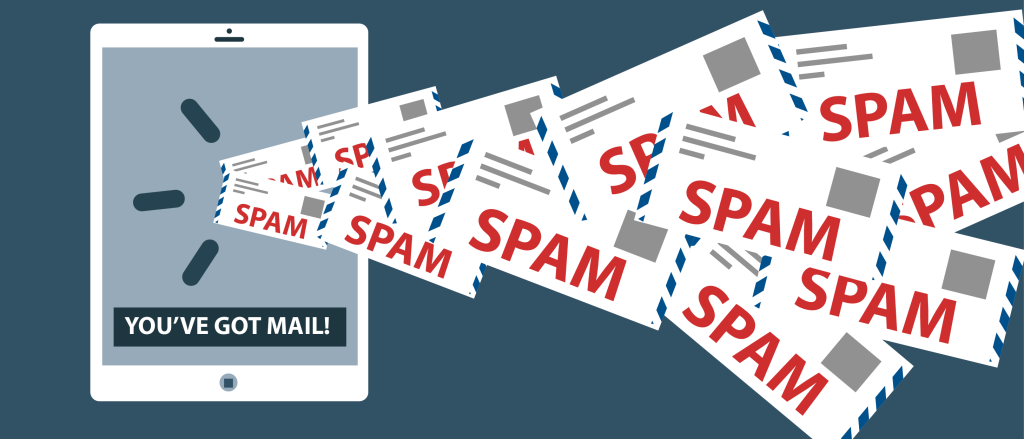Talk to Sales: (401) 200-6026
Are your emails breaking spam laws? Think beyond permission: email marketing must be compliant with the CAN-SPAM Act

Do you know how easy it is to break the law when you send an email? It’s not something car dealership owners think about until they get hit with a big fine. Permission email marketing messages must adhere to the criteria of the CAN-SPAM Act. This bill was signed into law in 2003, updated in 2008, and continues to go unnoticed by many car dealers.
Don’t worry—once you know the rules, it’s easy to comply with them. If you’re putting more emphasis on permission email marketing in the coming months, you’ll need to make sure your not putting yourself (or your dealership) in a position to break the law.
Gaining permission: email marketing misconceptions you should understand
 It may come as a surprise, but gaining permission to send emails is not a law. You don’t need permission to send a promotional email. There are rules you need to follow regarding the content of that email (more on this below), but you don’t need a signature to send it over.
It may come as a surprise, but gaining permission to send emails is not a law. You don’t need permission to send a promotional email. There are rules you need to follow regarding the content of that email (more on this below), but you don’t need a signature to send it over.
Here’s the rub: even though having permission is not a law, it may as well be. Without gaining that initial O.K. to send your promotions, your emails can quickly be disregarded and lead to bigger problems.
- Your recipients are far more likely to report your messages as spam. If they don’t recognize your dealership or the sender, your promo email is on its way to being marked as spam.
- It’s difficult to sneak by built-in spam filters. Internet service providers (ISPs) have tools to recognize spam automatically and send your message straight to that folder.
- You may end up blacklisted after too many complaints. If you send out an email campaign to many people who report you as spam, their ISPs may blacklist you indefinitely.
Luckily, there’s an easy way to avoid all of these issues: get permission. Not only that, but offer a “double opt-in” option. Once they sign-up for the email list, send a confirmation email to the recipients. This way you have absolute assurance that they know have given you permission.
Beyond permission: email marketing spam laws you need to follow
The CAN-SPAM Act is relatively straightforward and must be adhered to by any message that “promotes or advertises a commercial product or service through electronic communication.” Here are our best practices for compliance:
1. Always show that the email is from the dealership
The fields that identify who and where the email is coming from must be accurate. Always include the name of the dealership or the name of the employee. Don’t hide your names or create a fake name that might interest the reader enough to open the email.
 2. Write your subject line as an accurate reflection of what’s inside
2. Write your subject line as an accurate reflection of what’s inside
Your subject line must relate to the content that is inside of the email. For instance, you cannot write “You just won a free trip to Aruba! Claim your tickets!” while the message is actually about a new car promotion. That’s misleading and illegal. Make sure your that your subject lines are honest representations.
3. If you don’t have permission, email marketing disclosure is mandatory
Tell your recipient that the message you’re sending is an advertisement. You have to disclose the fact that you are marketing to them. Make it clear at the beginning of the message.This rule only applies to those people who have not opted-in to your mailing list. If they gave you permission, you don’t have to disclose the intentions of the email.
4. Include a physical address and contact info for the dealership
You have to show a physical address of where your dealership is located. For the reader, this effort assures that you’re a real business. It provides a degree of credibility. It also provides a way for the recipient to contact the dealership if they want to opt-out of the email list.
 5. Every email includes a quick way to unsubscribe
5. Every email includes a quick way to unsubscribe
Under the CAN-SPAM Act, every single promotional email must have an easy way to unsubscribe. Years ago, before this bill was signed into law, business owners would catch email addresses and never allow those people to unsubscribe from their constant messages. Now you must make it easy to find, click, and submit.
6. Obey the 10-day rule for opt-out requests
There will be people who opt-out of their subscriptions to newsletters and marketing lists. When you receive an unsubscribe request, you have ten days to remove that email. This situation is much better than having your messages marked as spam from people who did not subscribe the first place. It’s not a bad idea to use these moments to get feedback from subscribers and figure out ways to get them back.
Caution: you are responsible for the actions of third-party email services
One last thing: don’t think that handing over your permission email marketing to a third-party will save you from responsibility. If they break the rules, your dealership will be held accountable. Always keep track of the messages and make sure your marketing teams—in-house or outsourced—are in compliance with the CAN-SPAM laws.
Do you have tips to keep your email messages in compliance with CAN-SPAM? Share your story in the comments!
Interested in an Affordable, Full-Featured Auto Dealer CRM?
Schedule an AutoRaptor Demo Now!





